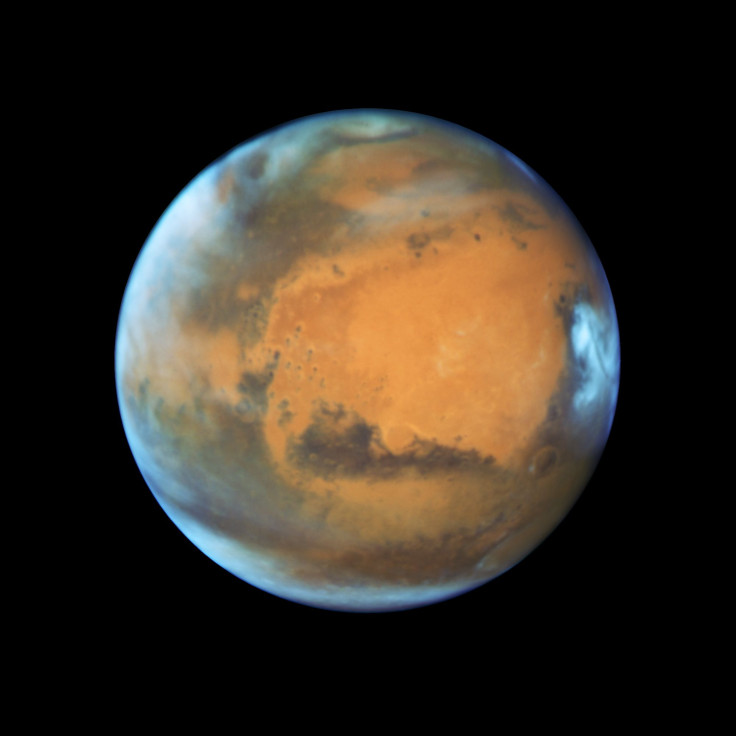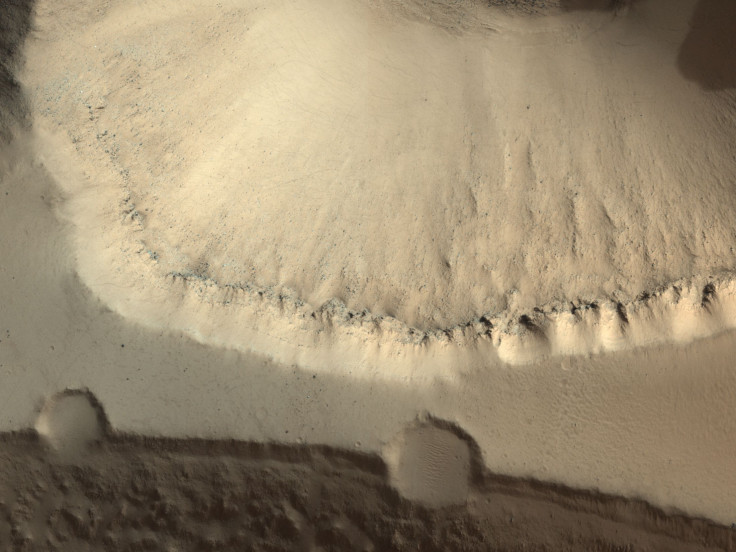What Is Mars Like? Red Planet's Landscape 'More Earth-Like Than Moon-Like'

The similarities between Earth and Mars have generally been considered few and far between. The Red Planet, laden with dust and rock, has long been thought to have a relatively simple, barren landscape, similar to our moon. New research, however, showed that its landscape is far more complex than that, and, in fact, far more similar to Earth itself.
Researchers at Louisiana State University studied Mars’ Elysium formation, the second largest volcanic complex on the Red Planet, using images from the Mars orbiter camera aboard the Mars Global Surveyor mission. In a study published Friday in the journal Scientific Reports, researchers revealed some striking similarities to our own planet.
“It’s more Earth-like than moon-like,” David Susko, geology and geophysics graduate researcher at LSU and the study’s lead author, said in a press release. “The moon is cut and dry. It often lacks the secondary minerals that occur on Earth due to weathering and igneous-water interactions. For decades, that’s also how we envisioned Mars, as a lifeless rock, full of craters with a number of long inactive volcanoes. We had a very simple view of the red planet. But the more we look at Mars, the less moon-like it becomes.”

Susko noted the similarities between the varying composition of magma and the types of rocks on Earth and on Mars. Researchers said there was still potential for Elysium and other volcanoes on Mars to erupt.
The study’s findings bode well for humanity’s possible future on Mars.
“We’re discovering more variety in rock types and geochemical compositions, as seen across the Curiosity Rover’s traverse in Gale Crater, and more potential for viable resource utilization and capacity to sustain a human population on Mars,” he said. “It’s much easier to survive on a complex planetary body bearing the mineral products of complex geology than on a simpler body like the moon or asteroids.”
© Copyright IBTimes 2024. All rights reserved.












